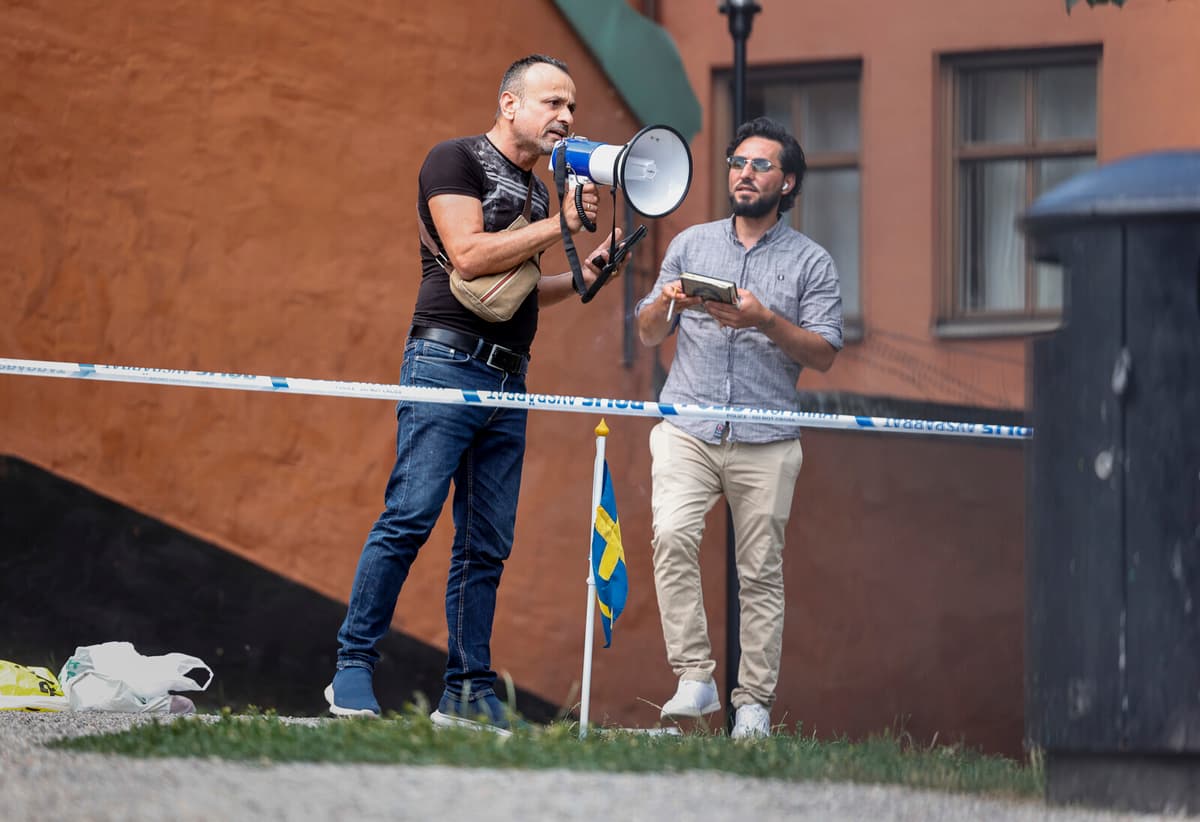In the summer of 2023, Salwan Momika and Salwan Najem burned Korans and received extensive attention and sparked strong reactions both in Sweden and around the world.
In July 2023, Sweden's embassy in Baghdad was stormed by hundreds of people. At the same time, Iraq broke off all diplomatic contacts with Sweden.
Iran's spiritual and political leader, Ayatollah Ali Khamenei, accused the Swedish government of being on the verge of war with the Muslim world, and several other countries directed sharp criticism towards Sweden.
The attention and outrage were on a different level when the trial against the two men began on Wednesday. Salwan Momika arrived at the Stockholm District Court, where the trial is being held in a secure courtroom, in a dark car escorted by two police officers with masked faces.
Less commotion
In total, a handful of journalists and spectators were present, along with significantly more police officers and security guards in the courtroom.
Prosecutor Daniel Suneson began with the indictment regarding the events outside the Stockholm Mosque on Södermalm in June 2023.
He described how the two men, according to the indictment, had burned the Koran, wrapped it in pork and also spat on it. He also presented statements made by the defendants.
In connection with this, they have held a speech in which they said that those who follow the Koran are dangerous and have a terrorist mindset, said Daniel Suneson.
Met on Tiktok
Both men deny any wrongdoing. When Salwan Momika was questioned, he said that he and Salwan Najem had met through Tiktok. Both Najem and Momika gave the same answer when the prosecutor asked them what the purpose of their demonstration was.
Freedom of speech.
Salwan Momika said that he himself spoke poor Swedish at the time and therefore thought it was a good idea to bring Salwan Najem, whose Swedish was better.
The prosecutor claims in the indictment that Momika and Najem, together or individually, committed the crime of incitement against a group of people through statements made during the demonstrations, which both deny.
According to the defendants, they had not prepared what they would say during the action. They did, however, go there together and, according to Momika, had brought "a microphone, pork, and the Koran" with them.
The prosecutor also asked if they had written a speech together, which Momika denied.
There was no speech. There was no written text. I spoke spontaneously.
Incitement against a group of people is a restriction on freedom of speech regulated in the Penal Code, Chapter 16, Section 8:
Anyone who, in a statement or other communication that is disseminated, threatens or expresses contempt for a group of people or another such group of people with reference to race, skin color, national or ethnic origin, religion, or sexual orientation, shall be sentenced for incitement against a group of people to imprisonment for up to two years or, if the crime is minor, to a fine.
If the crime is gross, the sentence shall be imprisonment for at least six months and up to four years. When assessing whether the crime is gross, particular attention shall be paid to whether the communication had a particularly threatening or offensive content and was disseminated to a large number of people in a way that was likely to attract significant attention.
Source: Swedish Code of Statutes






